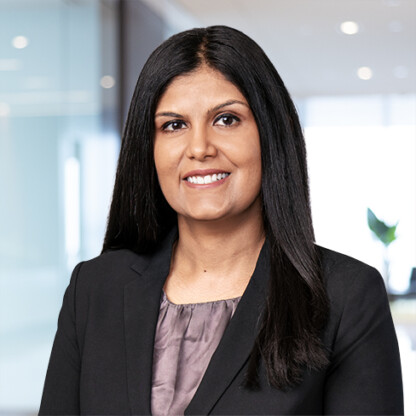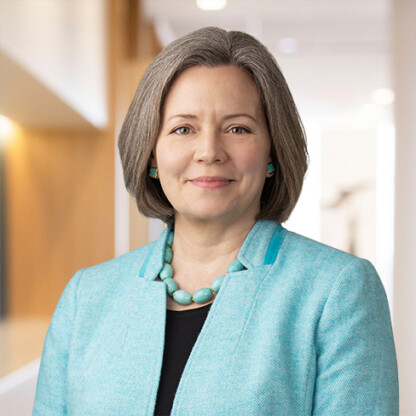Foley Panel Offers Candid Insights on Breaking the Cycle of Self-Limiting Thoughts
Best Self – Foley’s firmwide wellness initiative – recognizes that our people and their health, well-being, and professional satisfaction are at the center of our culture and core values.
In support of our Best Self ‘Fulfilling Careers’ pillar and ongoing efforts to make each person’s humanity a topic of open conversation, Foley presented a panel discussion on June 28 titled “Breaking the Cycle of Self-Limiting Thoughts.” This was a continuation of our extremely well-received 2021 and 2022 programs with a new slate of Foley attorneys and business professionals who brought fresh perspective from their own personal experiences.
Director of Coaching Anjali Desai, who moderated this year’s panel, grounded the discussion with a definition of self-limiting thoughts: those thoughts, ideas, or beliefs we hold to be true about ourselves or the world, but may not be, and that can impact our well-being and prevent us from reaching our full potential.
Desai kicked of the program by asking the panel, which featured partners Leigh Riley and David Sanders, senior counsel Tim Mohan, and director of Diversity, Equity & Inclusion Alexis Robertson, what made them want to be part of a discussion on self-limiting thoughts.
Connecting over how we address self-limiting thoughts brings it out in the open for those who experience them and is a really good way for me to work through my own, which I’ve been dealing with since I was a teenager.
I come at this from the perspective of someone who is blessed with irrational confidence. I want to share things I do to support people who experience self-limiting thoughts and learn other ways I can help them be comfortable with all their successes.
A few panelists shared a personal story about a time when they experienced self-limiting thoughts and the impact it had on their career or well-being.
The very worst time was as a first-year associate. I was coming out of 19 years of education where I was a straight-A student, and every piece of work product I turned in came back to me marked up. That really threw me into a tailspin, and I was mind-reading, catastrophizing, and having all-or-nothing thoughts all at once.
When it happens to me, I notice that I turn inward and pull away from people, and it can come across that I’m less engaged with work, family, or friends. This can lead to cycle of negative on top of negative until I deal with it.
Your background can really impact what types of self-bias you’re carrying, especially for those in underrepresented groups who see fewer examples of people who look like you who are succeeding. If you’re the first in your family to pursue college and you do poorly on the SAT, for example, that could lead you to the self-limiting thought that ‘people like me aren’t supposed to go to college.’
Desai then asked the panelists for their tips and advice on how they have been able to manage, overcome, and break the cycle of self-limiting thoughts.
We often don’t pause to consider how powerful our minds are. If you continually seek proof that ‘I’m not good at this’, your brain will say ‘okay’. Instead of always fighting for that limitation, we can prime our brain to work in a way that is more advantageous for us.
I’m a big believer in mind and body and creating pathways that bring us to a better place. For me, no matter how stressed I am, if I make myself exercise, eat healthy, and get sleep, I know I will feel so much better.
After years of gritting my teeth and bearing down, I started talking to a therapist and taking medication to help me manage my feelings of anxiety.
I give myself grace that I will have self-limiting thoughts – and when I do, my goal is to get past them quickly by telling them to ‘shut up’ and that they are not helpful to getting this work done.
There’s a difference between perfectionism and healthy striving. If what you’re doing is okay with you and you tried your best, it can be easier when you do get negative feedback to use them to grow, not berate yourself.
When I’m having these thoughts, I lean in rather than pull away. Whether it’s going to a social gathering with colleagues or hugging my spouse, connecting with others leads to talking, and talking leads to sharing our emotions, which makes me feel better.
Desai closed out the program by thanking the panelists for being open and vulnerable and by sharing additional resources with the attorneys, business professionals, and summer associates and interns who attended.



